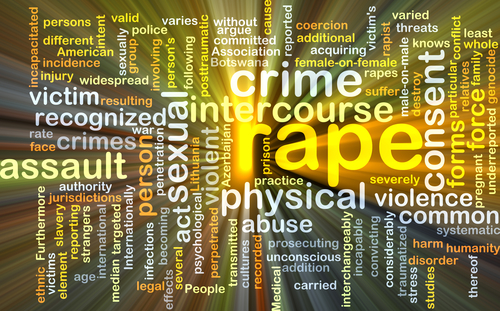
Sexual misconduct Men and Women, take note.
Men; both perpetrators and victims: Women; victims
Men as perpetrators:
Sexual abuse is common, particularly on women: Ninety percent of all rapes are committed against women, and most mental health practitioners focus on treatment of women, (goodtherapy.org/learn-about-therapy/issues/sexual)
Sexual harassment is defined as unwelcome sexual advances, requests for sexual favors, and other verbal or physical conduct of a sexual nature, such as:
Unwanted sexual statements: Sexual or “dirty” jokes, comments on physical attributes, spreading rumors about or rating others as to sexual activity or performance, talking about one’s sexual activity in front of others and displaying or distributing sexually explicit drawings, pictures and/or written material. Unwanted sexual statements can be made in person, in writing, electronically (email, instant messaging, blogs, web pages, etc.) and otherwise.
Unwanted personal attention: Letters, telephone calls, visits, pressure for sexual favors, pressure for unnecessary personal interaction and pressure for dates where a sexual/romantic intent appears evident but remains unwanted.
Unwanted physical or sexual advances: Touching, hugging, kissing, fondling, touching oneself sexually for others to view, sexual assault, intercourse or other sexual activity. (Sexual Assault Prevention Awareness Center (SAPAC), Office of Institutional Equity, University of Michigan).
Men as Victims:
Males of this type tend to objectify females; thus, objectifying themselves in the process.
How so?
Most understand males’ penchant for objectifying females, but in the process, they are objectifying themselves as well. Carla Birnberg, “Self-objectification: is defined as when we choose to evaluate ourselves based on appearance because that’s how we believe others adjudicate us. It’s when we see ourselves as an OBJECT first and a person (a being who is enough simply by BEING). Second, it’s seeing yourself through someone else’s eyes & allowing that to color (or cause you to lose completely) your perspective on yourself”. (carlabirnberg.com, /2010/07/21/self-objectification, also quotes Mizfits)
So how does such a view disadvantage men in practical terms? At various points in their lives, they experience important interactions with women; in classrooms, at job interviews, contract negotiations, in a court of law. In each of these, as in many others, men are disadvantaging themselves, indulging in off- topic objectifying while their female counterparts, focusing on the task at hand, are “besting” them in the process; leading men to poor grades, loss of jobs, inferior contracts and inexpert courtroom representation
Men, where does that get you?
Treatment
National Institute of Justice (NIJ) recommends two basic components: (1) development and maintenance of a trusting relationship with a therapist; and (2) recounting one’s story about the assault to help the individual overcome its debilitating symptoms.
NIJ continues, “In general, counselors and therapists attempt to help victims make sense of their memories and reduce or eliminate symptoms, including thoughts, flashbacks, guilt, and fears associated with the victim’s response to the assault. The practice can also teach sexual assault victims other skills, such as anger management, assertiveness, and communication”.
“Therapists usually focus more on the current situation and its solution, concentrating on a person’s views and beliefs about their life”.
This is where Counseling on Demand comes in. We work together, employing:
The cognitive-behavioral approach aimed at changing your behaviors within your environment. Including exposure or prolonged exposure, stress inoculation training, eye movement desensitization reprocessing, cognitive processing therapy, and assertiveness training.
Psychodynamic approach encouraging expression of emotions, exploration of avoidance of distressing emotions, examining past experiences, identification of defense mechanisms, and working through interpersonal relationships; encouraging healthier functioning.
Supportive psychotherapy & counseling allowing you to share your traumatic experience and the symptoms that resulted from the event, aiming to normalize experience, instill hope, increase interpersonal learning, and decrease your sense of isolation… All in a safe place. (As per NIJ guidelines)
Talk therapy/counseling is not just talk. It is the relationship that heals.
We are online at CounselingonDemand.com
We are only a click away.